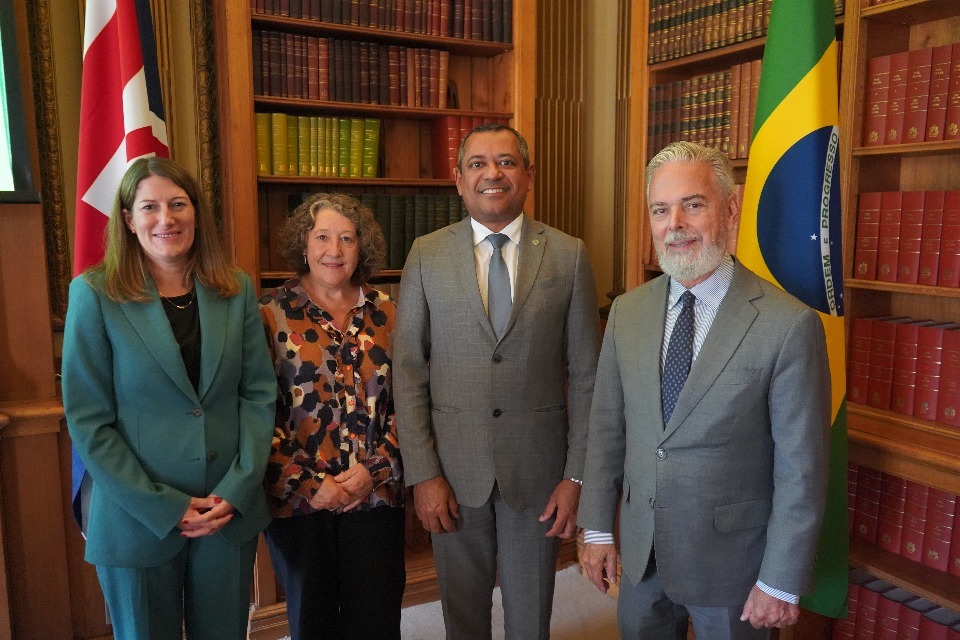-
UK government introduces legislation to help protect two-thirds of the world’s ocean.
-
As part of the Plan for Change, this bill will help support food security in the UK by safeguarding a key source of the world’s food and oxygen.
-
This bill builds on the commitment to join global partners supporting this treaty.
The UK government today (10 September) will introduce a landmark bill to protect two-thirds of the world’s ocean, a key source of food and oxygen for people in the UK and all over the world. This marks a major step forward in global efforts to protect marine life and ecosystems beyond national borders.
In 2023, the UK signed up to the Biodiversity Beyond National Jurisdiction (BBNJ) Agreement—often referred to as the High Seas Treaty—at the first opportunity.
Having played a leading role in shaping the Treaty over more than a decade of negotiations, the UK was among the first countries to sign the agreement. Today’s bill turns that commitment into action, as the UK joins countries across the globe who have supported the major international treaty.
With the ocean a key source of the world’s food and oxygen, the Agreement will help deliver security for the UK, in line with the government’s Plan for Change.
For the first time, the BBNJ Agreement will create a legal mechanism to set up protected zones in areas beyond national jurisdiction, helping to protect marine life and habitats in parts of the ocean that have previously been vulnerable to overuse and exploitation.
Marine Minister Emma Hardy said
Our ocean and all the precious life in it face irreversible destruction from overfishing and runaway pollution.
This historic treaty will safeguard some of the ocean’s most vulnerable habitats and marine life, and help protect 30% of the ocean by 2030 as part of our Plan for Change.
Minister Malhotra, Parliamentary Under-Secretary of State at the Foreign, Commonwealth and Development Office, said
Our oceans are under pressure, it’s undeniable. Unsustainable fishing, global warming, pollution—all threaten to deplete the marine biodiversity we all value and rely upon.
By introducing the BBNJ Bill in Parliament, we are delivering security for the UK, in line with our Plan for Change—and fulfilling our pledge to introduce legislation by the end of the year.
The UK was one of the first countries to sign up to the BBNJ Agreement when it was adopted after over a decade of talks. Today, we begin the journey to ratifying this landmark treaty, and ensuring our ocean can thrive in the years to come.
Sharks, whales, sea turtles and many other ocean species will benefit from stronger protections. These measures will support the recovery of marine ecosystems and help build a healthier, thriving ocean that benefits both nature and people.
The agreement also sets out the fair sharing of benefits from the collection of and research into the genetic material of marine organisms, which may be used in medicines, cosmetics, agriculture and biotechnology.
The legislation will help the UK meet targets set out by the Kunming-Montreal Global Biodiversity Framework, most importantly the target to protect 30% of the planet’s ocean by 2030. It also reinforces the UN Convention on the Law of the Sea (UNCLOS) as the foundation for international ocean governance.
It realises a pledge made at the end of the third UN Ocean Conference in June. By bringing this Bill to Parliament, the government establishes the UK’s intention to play a leading role in driving international climate and nature action forward.
Following the passing of the bill, further secondary legislation will be required before the BBNJ Agreement can be ratified by the UK.
Background
- This bill will provide the legal framework to enable the UK to meet the obligations of the BBNJ Agreement, which is required before the UK can ratify the agreement.





